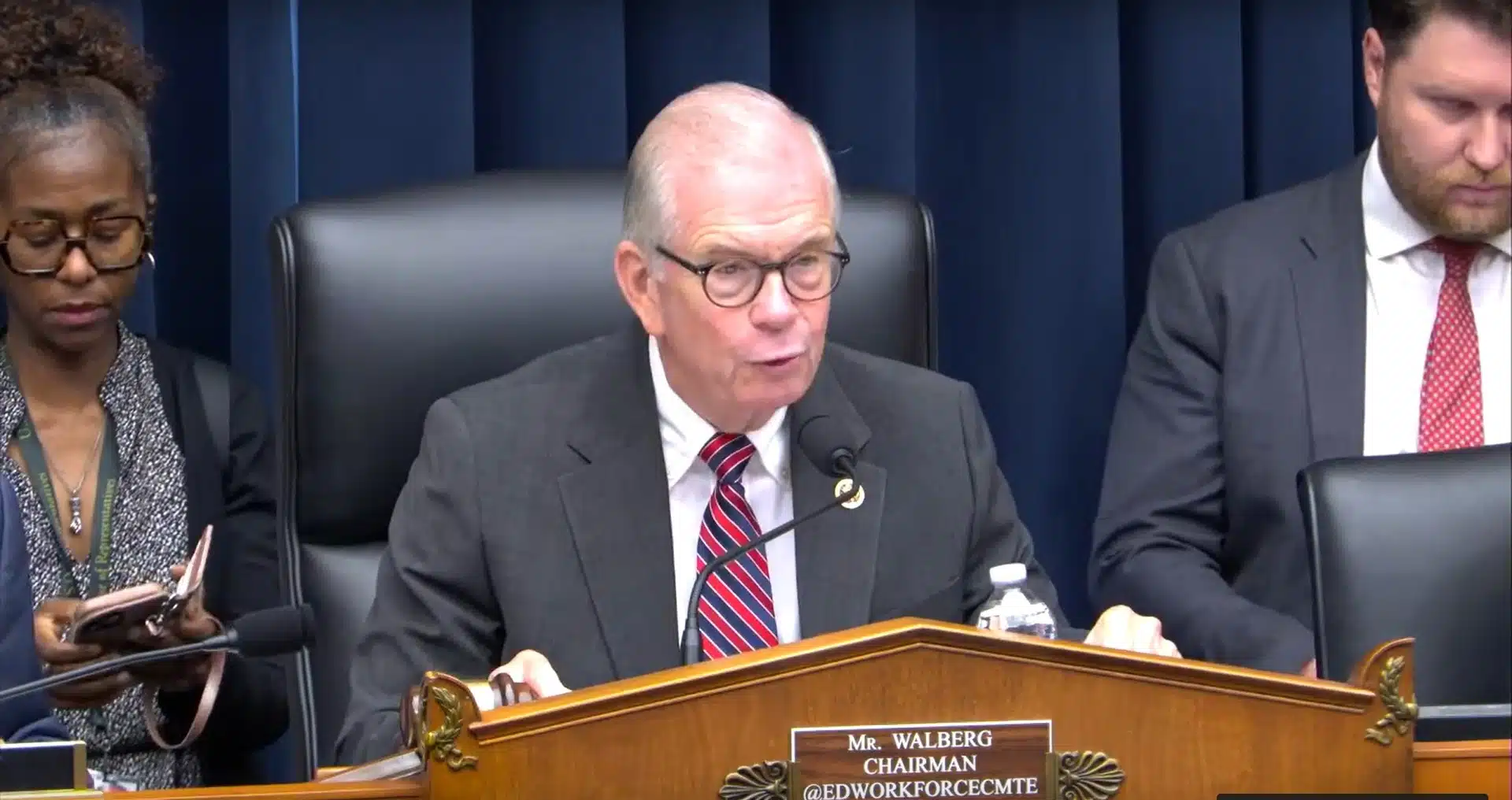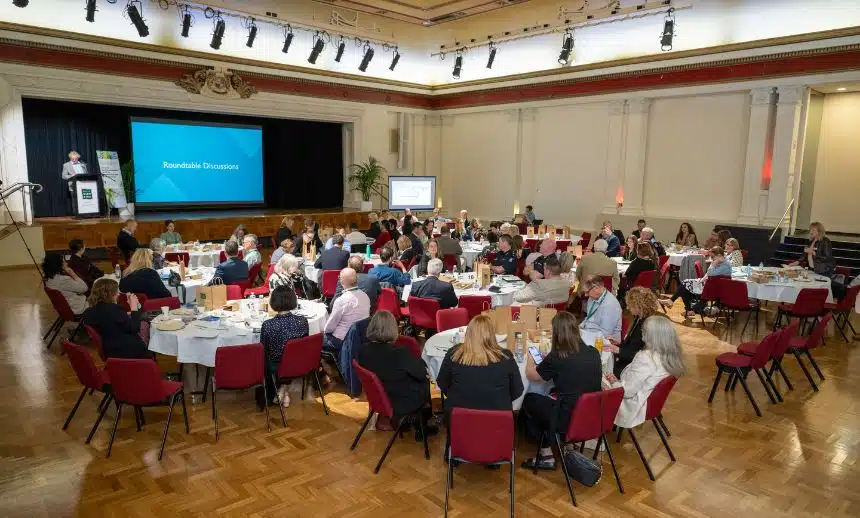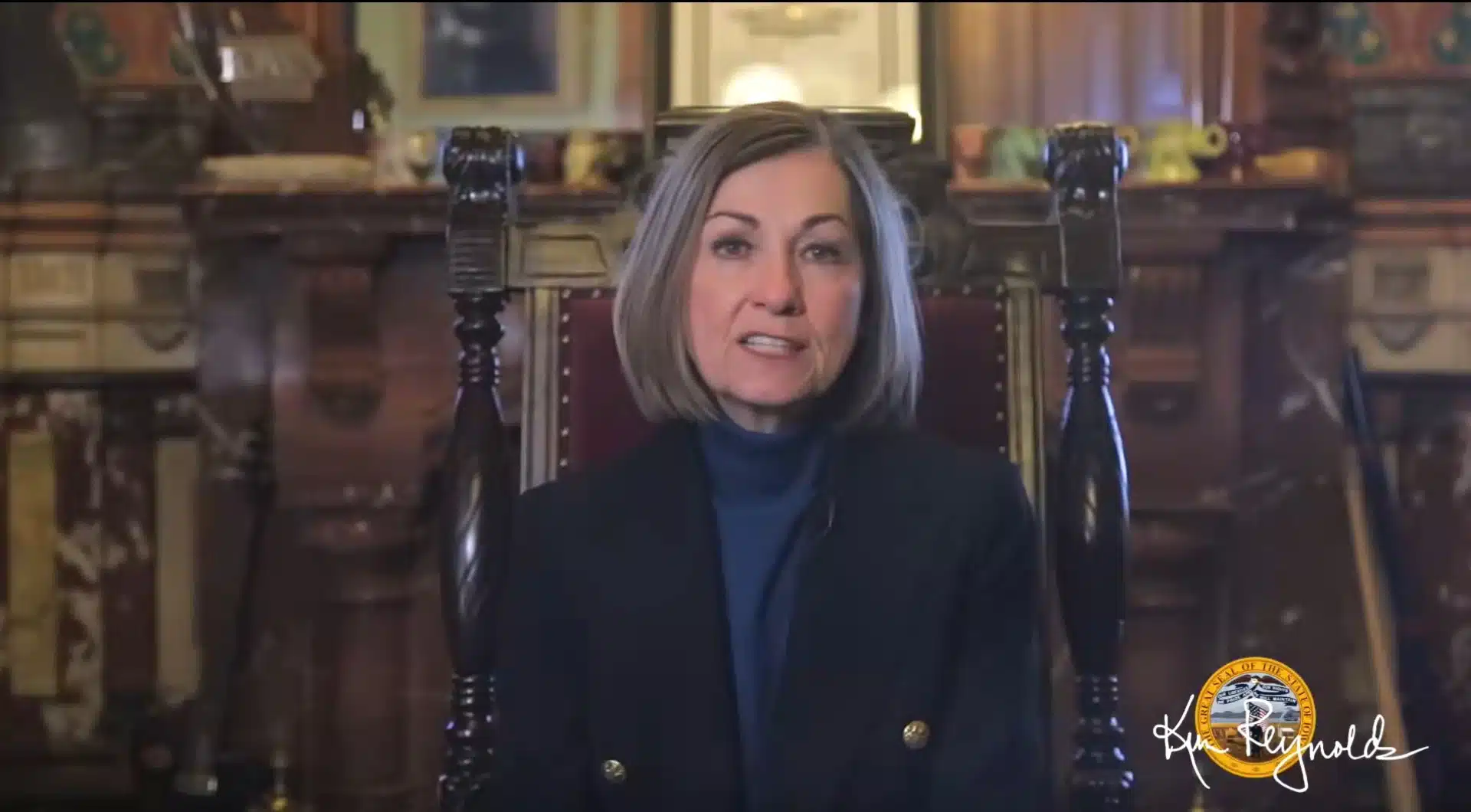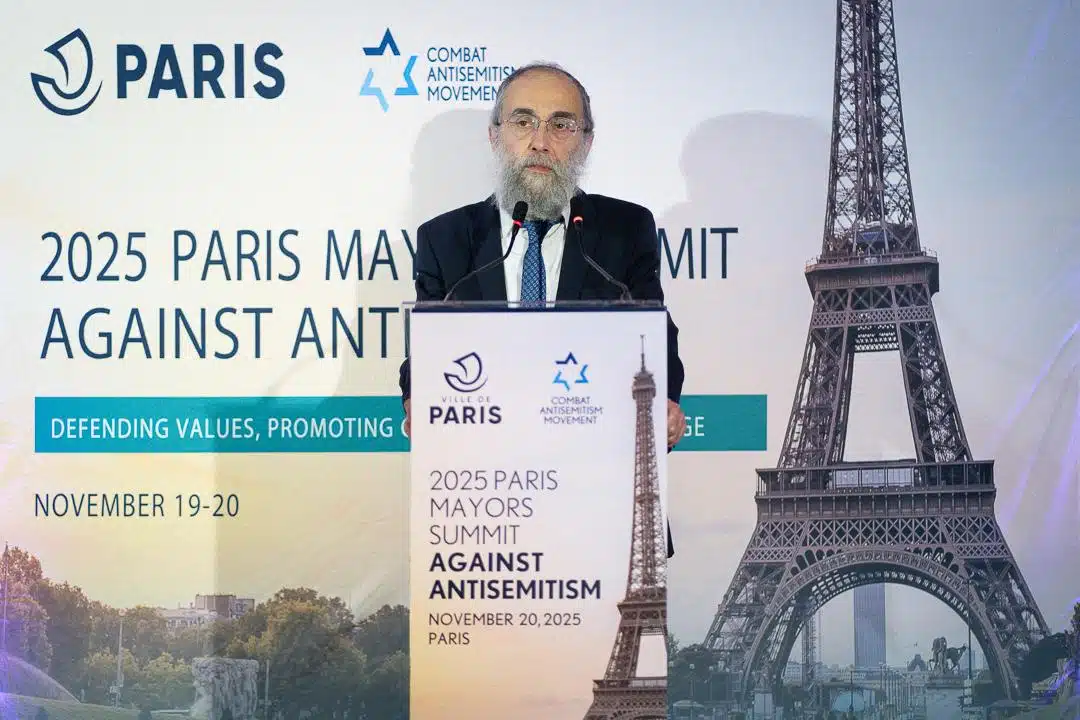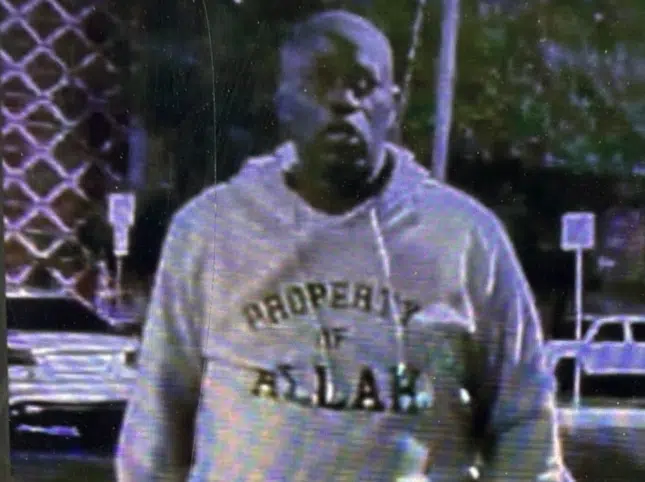|
Getting your Trinity Audio player ready...
|
In a closely-watched Capitol Hill hearing on Tuesday, the U.S. House of Representatives Committee on Education and the Workforce intensified its inquiry into campus antisemitism, questioning the heads of Georgetown University, the City University of New York (CUNY), and the University of California, Berkeley.
The hearing — titled “Antisemitism in Higher Education: Examining the Role of Faculty, Funding, and Ideology” — marked the latest step in a series of oversight efforts sparked by the October 7th massacre and the wave of anti-Israel activism that followed on American campuses.
“Today’s hearing marks the next phase of our work — an effort to understand why this wave of antisemitism was able to so easily consume the nation’s universities in the first place,” said Committee Chair Rep. Tim Walberg (R-MI), opening the three-hour session.
Walberg emphasized that the committee’s investigation would examine how entrenched ideologies and activist networks — including faculty and student groups — have mainstreamed antisemitism under the banner of social justice.
He singled out the group Students for Justice in Palestine (SJP), which gained national attention for celebrating the October 7th attack.
“Over 100 new chapters have been established since that day,” he warned, “many of them intent on spreading anti-Jewish hatred with the endorsement — or protection — of university administrations.”
Walberg also raised alarm over the growing number of Faculty and Staff for Justice in Palestine (FSJP) chapters, which he described as attempts to bring antisemitism directly into classrooms and cloak it in academic legitimacy.
Faculty Radicalization and Extremist Rhetoric
Much of the hearing focused on the role of faculty in promoting anti-Israel and antisemitic narratives. Lawmakers highlighted several disturbing cases, including Immanuel Ness, a political science professor at Brooklyn College, who publicly endorsed “resistance by any means necessary” — a phrase committee members condemned as a direct call for violent action against Jews and the State of Israel.
They also pointed to Khalil Jahshan, a Georgetown-affiliated scholar, who posted on social media: “I could have been one of those who broke through the siege on October 7.” Lawmakers described the post as a celebration of terrorism.
Georgetown Chancellor Rich Lyons acknowledged it was “a celebration of the terrorist attack,” but nevertheless defended Jahshan as “a fine scholar” who had received an academic award.
CUNY Chancellor Félix Matos Rodríguez was asked about a reported case in which a faculty member allegedly said “down with Zionist scum.” He replied that he believed the professor was no longer employed but did not confirm whether other faculty members had been disciplined for antisemitic remarks.
While condemning hate speech, the university leaders largely declined to speak about specific personnel matters.
Jewish Students Targeted, Harassed, and Doxxed
The hearing also featured a disturbing litany of antisemitic harassment targeting Jewish students across U.S. campuses. Rep. Elise Stefanik (R-NY) described a protest at CUNY’s Baruch College where demonstrators mocked Jewish students by shouting, “Where’s Hersh?” — a reference to Israeli hostage Hersh Goldberg-Polin, who was murdered in Hamas captivity.
Protesters also reportedly told Jewish students to “go back to Brooklyn” and declared that “all Zionists are terrorists.”
Rodríguez called the comments “deplorable” and said an investigation had taken place, though noted that some demonstrations occurred on public property adjacent to campuses, limiting the university’s jurisdiction.
Additional examples raised by lawmakers included:
- A Nazi swastika displayed inside a Hunter College office, where Jewish students who reported it to university leadership received a troubling response: “Apologies, but it is not that simple.”
- A mezuzah torn from a Jewish student’s doorpost, as detailed in a student op-ed cited during the hearing. The student was never contacted by university officials, and her case was reportedly dismissed without follow-up.
- An incident in which a Jewish student who had been accepted to a university chose to transfer elsewhere after being doxxed and harassed online for expressing pro-Israel views.
Rodríguez reported that CUNY had received 68 complaints of antisemitism in 2024 and 16 more since the start of 2025. In the past two years, the university has disciplined 18 students for antisemitism-related conduct and 25 for inappropriate behavior during protests.
When asked directly whether CUNY has antisemitic faculty, Rodríguez responded that some faculty “might conduct themselves in antisemitic behavior,” and reiterated the institution’s zero-tolerance policy.
Outside Influence and Glorification of Terrorism
Lawmakers also raised alarm over the influence of extremist organizations shaping campus discourse, with particular attention to the Council on American-Islamic Relations (CAIR). Committee members cited statements from CAIR leadership glorifying Hamas’s October 7 massacre — including one senior official who described it as a “beautiful, beautiful day.”
Legislators noted that CAIR has a documented history of antisemitic rhetoric and longstanding ties to individuals and groups affiliated with terrorism. They warned that when universities platform or collaborate with such organizations, they don’t just invite controversy — they legitimize ideologies that incite violence against Jews and glorify terrorism.
Such associations, lawmakers argued, contribute directly to the normalization of antisemitism in academic spaces.
Defining Antisemitism and the Limits of Speech
Committee members asked each university leader whether denying Jews the right to self-determination constitutes antisemitism. All three answered without hesitation: “Yes.” However, when pressed on chants such as “Globalize the Intifada” or expressions that appear to celebrate attacks on Israelis, the university leaders were more cautious. While each condemned violence, they underscored the legal and institutional challenges of regulating speech protected under the First Amendment.
UC Berkeley Chancellor Rich Lyons emphasized the importance of protecting free expression, saying that doing so does not exempt the university from confronting hate. Georgetown Interim President Robert Groves echoed that view, adding that the university had taken recent disciplinary steps, including placing a professor on leave and removing him from a departmental leadership role following inflammatory remarks about U.S. military targets.
Foreign Funding and Institutional Transparency
Representative Walberg raised concern over the influence of foreign actors on American campuses, warning that universities “can choose to hire antisemitic faculty, welcome students with a history of antisemitism, accept certain foreign funding, and let the behavior of antisemitic unions go unchecked — but they do so at their own risk.” Lawmakers pressed university leaders on whether their institutions would commit to transparency regarding donations from foreign governments and entities.
Groves affirmed his university’s compliance with federal reporting requirements and expressed support for full disclosure of foreign contributions, noting that Georgetown had previously been commended by the Department of Education for transparency around donations from Qatar.
Lyons, however, declined to commit to full disclosure, citing donor confidentiality concerns.
Rodríguez was not directly asked about foreign funding during the hearing but reiterated his opposition to the Boycott, Divestment, and Sanctions (BDS) movement, stating, “I have repudiated BDS and said there’s no place for it at the City University of New York.” He emphasized that the CUNY faculty union, which has supported BDS, operates independently of the administration.
A Divided Committee, and a Call for Action
The hearing came months after a similar session in 2023 led to the resignations of two Ivy League presidents following their evasive responses to antisemitism on campus. While Tuesday’s hearing did not produce such viral flashpoints, it was no less intense.
Republican lawmakers accused university administrators of failing to protect Jewish students, while some Democrats argued that the hearing reflected a broader effort to suppress dissenting political views on campus — particularly criticism of Israel — and warned against using the fight against antisemitism as a pretext to silence legitimate expression.
Representative Stefanik delivered one of the sharpest rebukes of the day. “You have failed the people of New York,” she told Rodríguez. “This is all words, no action.”
Committee members signaled that further hearings, investigations, and potential legislative proposals are likely as Congress continues its push to hold universities accountable for rising antisemitism.
Watch a full recording of the hearing HERE:

